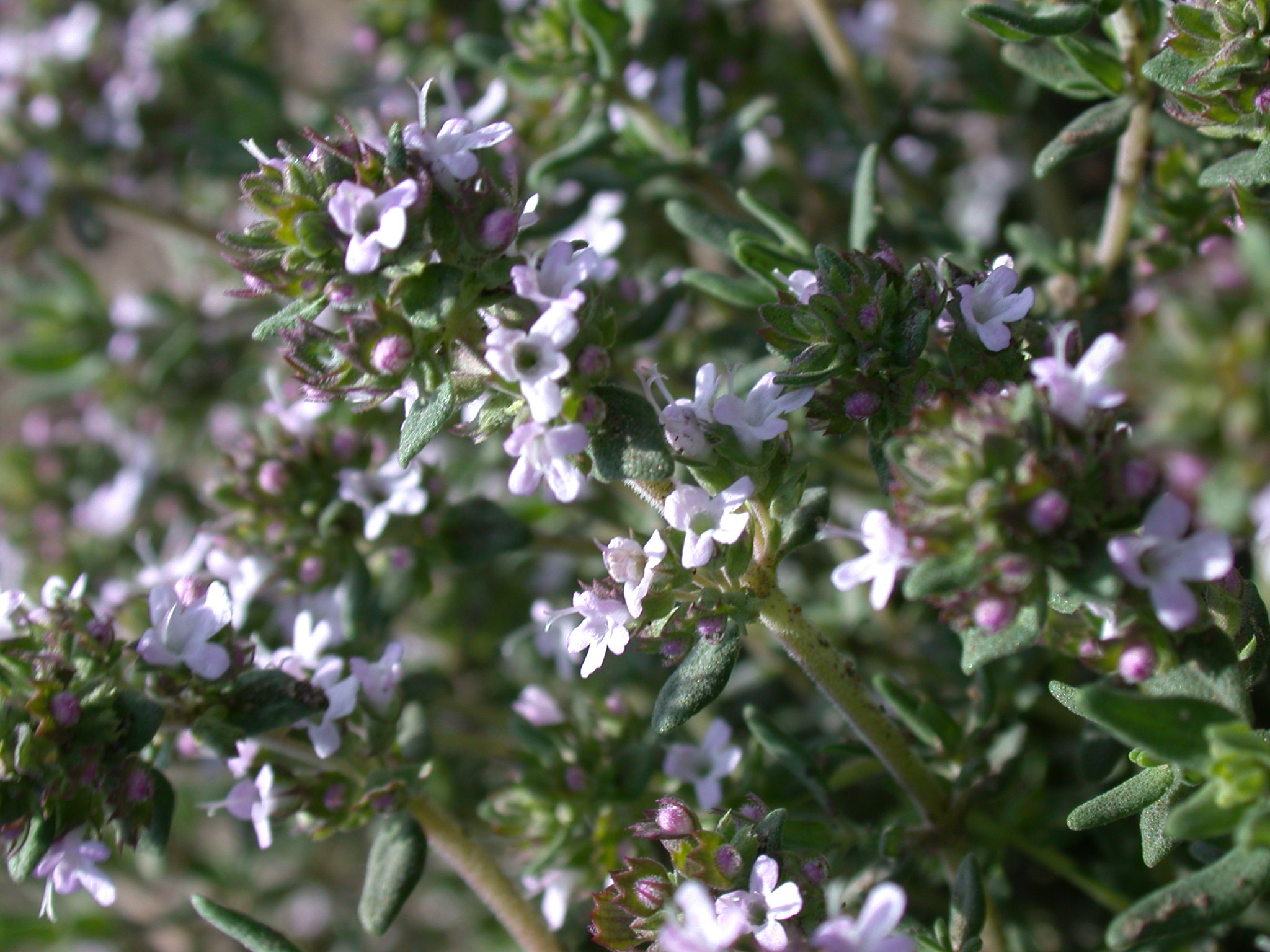Thymus vulgaris L. - Thyme
Thymus vulgaris is a low growing sub-shrub in Lamiaceae family (Ch). The roots and lower shoots are wooden, the stems are erect, 20-50 cm tall. The small, lanceolate leaves are opposite decusate, dark-green. The marginals are entire, wrapped. The flowers bloom from May to June, the flower colour differs from white to pink or light-purple. The seeds are very small, dark-brown, thousand seed weight: 0.25-0.28 g.
Thymus vulgaris is a characteristic Mediterranean species, originates from the North-West coasts of Mediterranean Sea. In Hungary, thyme is not native, but often planted in gardens and sometimes occurs wildly on calcic, well drained soils in warm, sunny places.
Thyme’s drug, which is official in Hungarian Pharmacopoeia VIII. is Thymi herba. The drug consists of the dried flowering shoots (the stems are separated) of Thymus vulgaris or T. zygis, or both species. Pharmacopoeia describes 12 ml/kg essential oil content with 40 % phenolic monoterpene in the drug. The volatile oil of thyme is also important, Thymi aetheroleum. The oil is prescribed to be distilled from the fresh, overground parts of Thymus vulgaris, T. zygis, or both of them. Herba and aetheroleum are mentioned in ESCOP-, E- és WHO-monographs too.
Thyme’s most important active agent is essential oil, the amount is 1.0-2.5 %, the major constituent is thymol (20-75%). P-cimol, gamma terpinene, geraniol, linalool, alfa-terpineol, carvacrol and thujanol can be main compound too. The herb contains cinnamic acid derivates (rosmarinic acid, caffeic acid, chlorogenic acid, coumaric acid, ferulic acid), flavonoids (apigenin, luteolin and their glycosides) and triterpenes (ursoic acid, oleanolic acid).
Thymi herba has strong antibacterial, antiviral, antifungal, antioxidant and spasmolytic activity. Thyme infusion is one of the most frequently used antisepticums and spasmolyticums against bronchial diseases. The herb has effect on gastric organs too: digestive, carminative, and anthelmintic. The alcoholic extract is used against skin fungus. Fragrance and liqueur industry uses Thymus essential oil. Last, but not the least, Thymi herba is one of the most important spices of Mediterranean cuisine.


